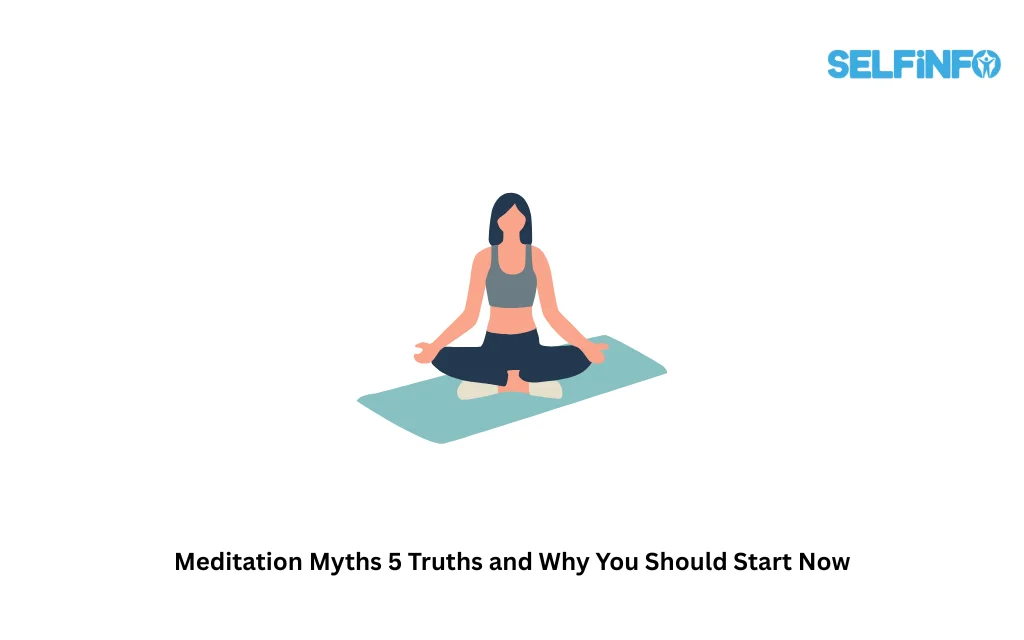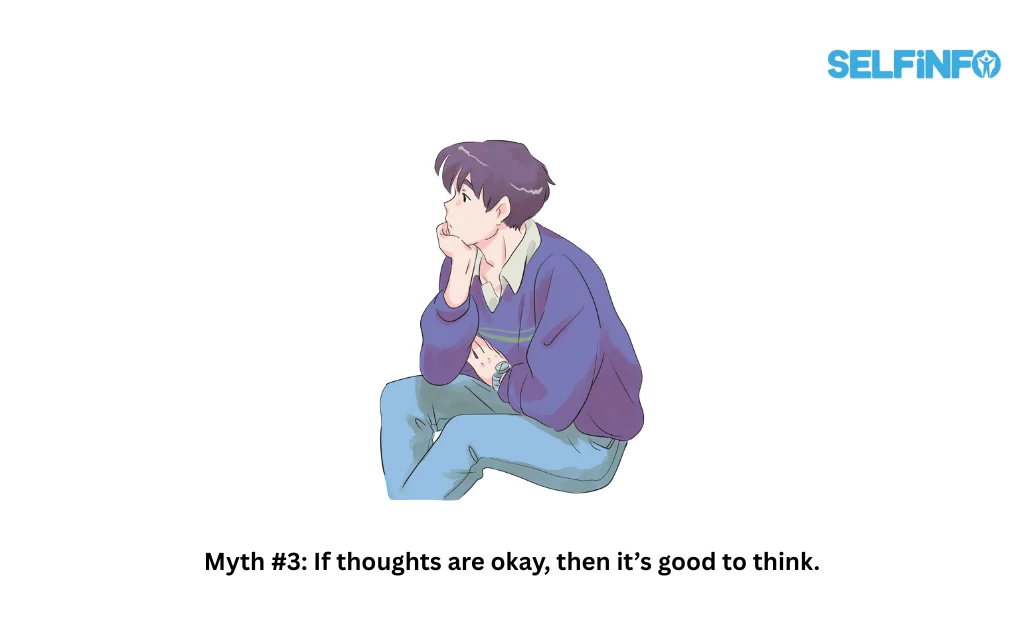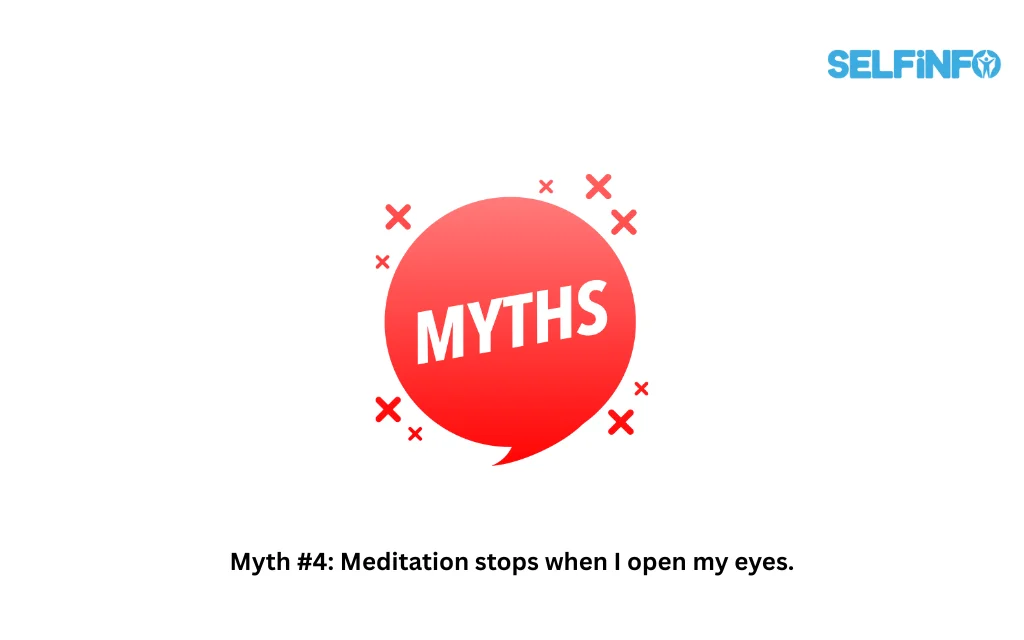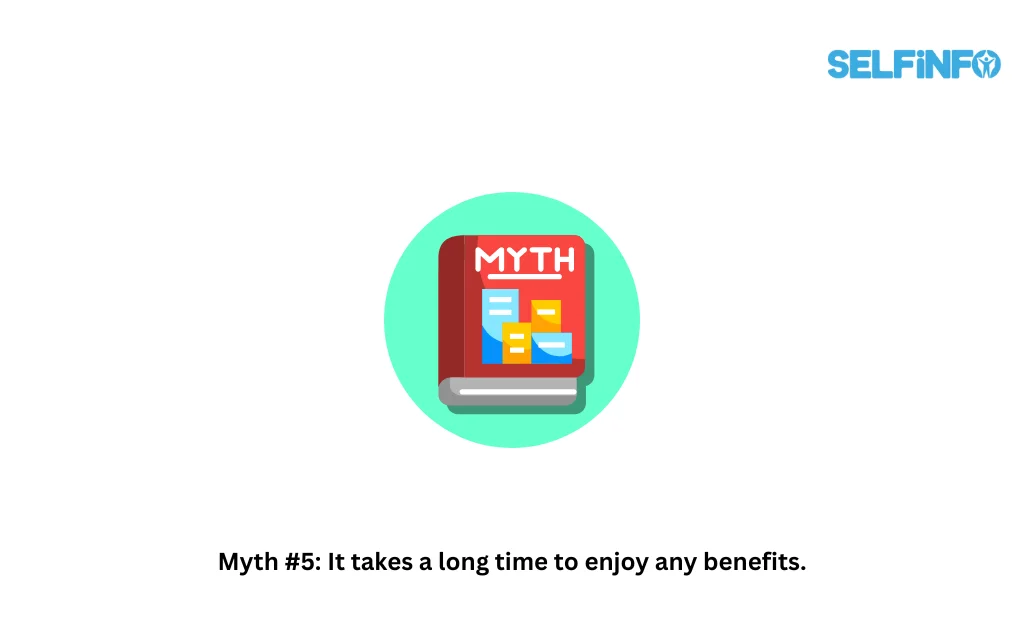Meditation myths made me believe success alone would bring peace. But a few years ago, I realised that even after reaching every goal, I still felt empty.
I became frustrated because I knew that my future could no longer satisfy me. I realized that my constant desire to believe that there must be more to life than this would not be satisfied if I kept working so hard to achieve greater and better ambitions.
Even worse, my growing annoyance caused a difficult period in my relationship that ultimately resulted in my partner’s departure. The lovely child I had been raising, the magnificent home I was occupying, the luxury vehicle I was operating, and the wealth we had amassed together as projects came to an end also vanished.
I began looking into different ways of thinking, being, and living because I was at my lowest point and needed calm.
Around that time, I encountered a group of meditation instructors who had a profound impact on my life. I noticed a joy and serenity in their eyes that I had hardly ever seen before. And the more time I spent with them, the more I realized how consistent their inner tranquility was.
I packed my bags and left to meditate with them for a few months since I was hungry to have the same experience. I was in the mountains of Mexico for fourteen weeks after spending ten weeks on the Greek island of Patmos.
Rather, the root source of my issues was my thought pattern. I missed the constant calm while I was preoccupied with my thoughts. Additionally, I discovered that life was lot more enjoyable after I learned to be present and thought less.
There are numerous benefits to meditation, including self-awakening and stress reduction. I became a meditator because I was tired of my mind constantly working overtime. I wanted tranquility, and daily meditation has helped me become more conscious of the pure peace that permeates everything and less preoccupied with the thoughts that race through my head.
Some misconceptions about meditation can prevent people from starting or from quitting before they can benefit from regular meditation, even though it is quite easy and has many advantages.
The main myths about meditation are:

Myth #1: Meditation is difficult.
When done properly, meditation can be the simplest and most pleasurable activity you have ever engaged in. It takes work, struggle, tension, and endurance to make something tough.
In actuality, though, meditation necessitates the exact opposite. You are learning how to do nothing, so there is no effort. You are not forcing anything, thus there is no effort. Since the primary goal of meditation is relaxation, there is no need for endurance and no stress because you are not opposing anything!
Myth #2: I must still my mind.
One of the most frequent excuses I hear from people who have attempted meditation but stopped is, “I can not meditate because I can not stop my thoughts.” But it is crucial to realize that thinking is a normal—and essential—aspect of meditation.
Your body rests while you meditate. The body heals when it is at rest. Releasing stress and pursuing recovery are two active aspects of the healing process. Because of the mind-body link, your ideas mirror the activity in your mind, which in turn reflects the activity in your body.
Therefore, thoughts are an indication that your body is recuperating. One wonderful outcome of meditation is the healing of your neurological system. Refusing to think while meditation is not helpful. To fight against thoughts is to fight against recovery!
Instead, do not fight the existence of thoughts; instead, allow the healing process to occur as it naturally desires.
When you meditate, learn to be at peace with whatever thoughts arise and let them come and go.
Myth #3: If thoughts are okay, then it’s good to think.

While it is acceptable to have thoughts, I do not advise you to purposefully ponder your way through each meditation. Having thoughts and actually thinking are two very different things.
The goal of meditation is to allow ideas to pass through your mind without actively participating in them.
Thinking happens when you become your thoughts instead of just witnessing them.
You are in the idea stream when you are thinking. The dream is you. You are immersed in your own fiction, discussing hypothetical topics with your pal, organizing your supper, or anything else.
Falling asleep is a lot like thinking. You are basically lost in your thoughts when you are thinking. You are no longer mindful of who you truly are, nor are you present. Regular meditation practice helps you break the tendency of thinking too much.
If you catch yourself thinking during your meditation, be kind to yourself. It is merely a habit! Just return to being mindful and in the moment when you realize you have been thinking.
Myth #4: Meditation stops when I open my eyes.

Fortunately, the small skin flaps known as your eyelids do not have to interfere with your tranquility because you will spend the majority of your day with your eyes open.
When you focus on the quiet, motionless area that exists inside your conscious awareness, you will find peace. You can focus both with and without your eyes open.
Developing the practice of easily focusing some of your attention inward on the presence of quiet, silent space at all times is one “objective” of meditation. It does not matter if your eyes are open or closed.
Myth #5: It takes a long time to enjoy any benefits.

The benefits of meditation begin as soon as you start. Although you might not feel happy or at ease right away, your body will have an opportunity to relax, let go of pent-up tension, and recover.
I am reminded of a story by this myth. A man in his seventies desired to learn how to play the piano. Since learning takes so long, his youngster asked what the point was. The elderly man who played the piano, however, was not convinced to give up. Rather, he only informed his son that if he began now, he would be a far better pianist by the time he was 75 years old than if he did not begin at all.
This narrative resonates with meditation, which is why I adore it. Changes that are quite visible could take some time to manifest. In contrast to not starting at all, you can be certain that you will experience a great deal more serenity, love, and happiness over the ensuing months and years if you begin and continue to practice it consistently.
